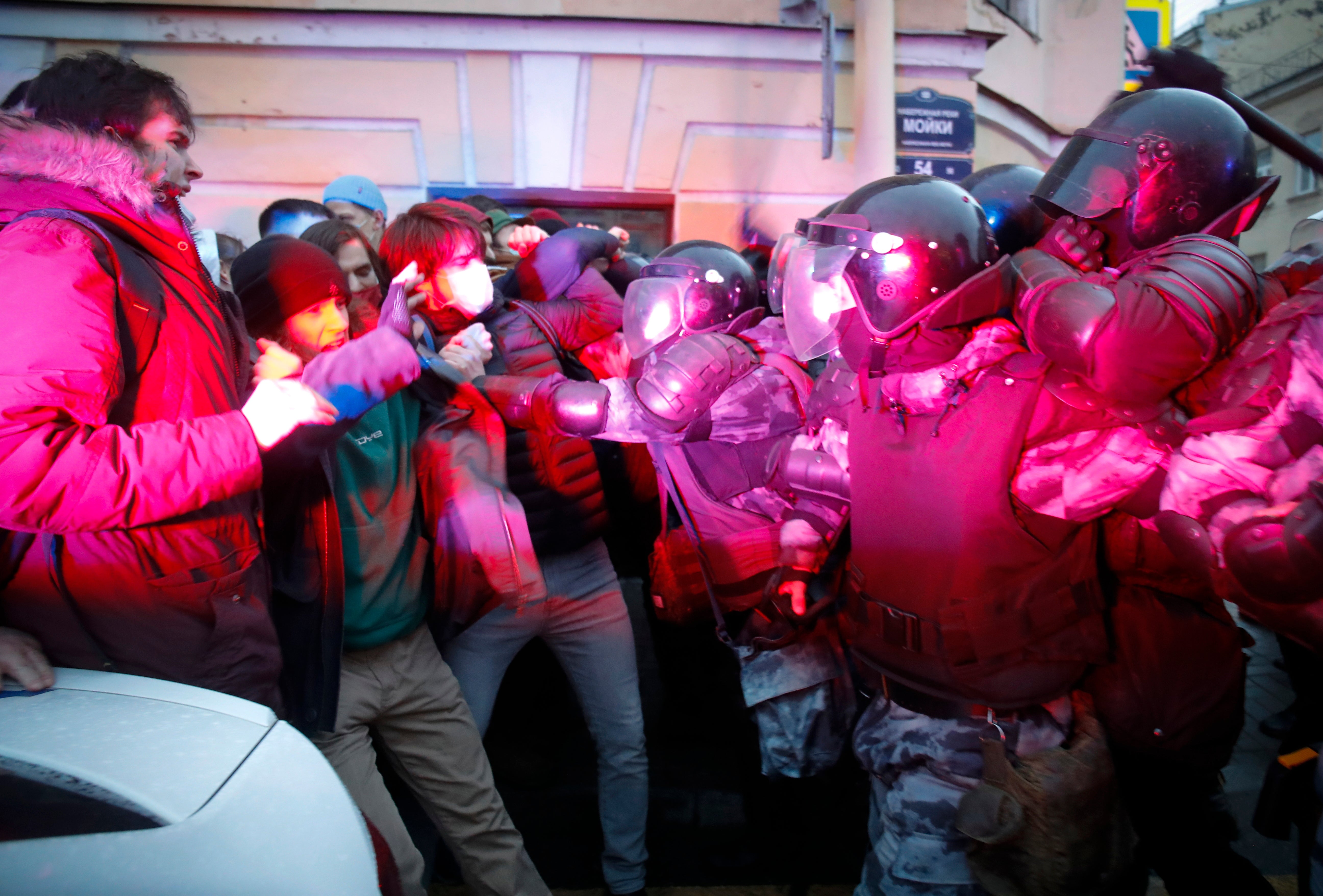'Pride and hope': Navalny praises protests in his support
Imprisoned Russian opposition leader Alexei Navalny says in an emotional message from behind bars that he felt “pride and hope” after learning from his lawyer about the mass protests demanding his freedom that swept Russia Wednesday

Your support helps us to tell the story
From reproductive rights to climate change to Big Tech, The Independent is on the ground when the story is developing. Whether it's investigating the financials of Elon Musk's pro-Trump PAC or producing our latest documentary, 'The A Word', which shines a light on the American women fighting for reproductive rights, we know how important it is to parse out the facts from the messaging.
At such a critical moment in US history, we need reporters on the ground. Your donation allows us to keep sending journalists to speak to both sides of the story.
The Independent is trusted by Americans across the entire political spectrum. And unlike many other quality news outlets, we choose not to lock Americans out of our reporting and analysis with paywalls. We believe quality journalism should be available to everyone, paid for by those who can afford it.
Your support makes all the difference.Imprisoned Russian opposition leader Alexei Navalny said in an emotional message from behind bars Thursday that he felt “pride and hope” after learning from his lawyer about the mass protests demanding his freedom that swept Russia the previous night.
“Here it is — the salvation of Russia. You. Those who came out. Those who didn't come out but supported it. Those who didn't support it publicly, but sympathized,” Navalny said in an Instagram post.
The 44-year-old, who is in his fourth week of hunger strike, said he hadn't known “what was really happening” because he only has access to one TV channel in prison, but his lawyer visited him on Thursday and got him up to speed about the events on Wednesday. “And, I will sincerely say, two feelings are raging inside me: pride and hope.”
“People are marching in the street. It means they know and understand everything," said Navalny, who is President Vladimir Putin’s most prominent opponent. "They won't give up their future, the future of their children, their country. Yes, it will be difficult and dark for some time. But those pulling Russia back historically are doomed. There are more of us in any case. Russia will be happy.”
Mass street protests in support of Navalny swept dozens of cities and smaller towns across Russia on Wednesday night. The largest crowds were seen in Moscow where thousands marched down the city center amid a heavy police presence.
Unlike on past occasions, officers in riot gear didn't interfere with the rally in the Russian capital, allowing quickly growing crowds to swarm streets and squares for several hours. According to OVD-Info, a rights group that monitors political arrests and offers legal aid, police detained only 31 people in Moscow, which usually accounts for the vast majority of arrests across the country.
But overall, OVD-Info tallied more than 1,900 arrests across the country on Wednesday night, with more than 800 occurring in St. Petersburg.
It was unclear whether the demonstrations matched the size and intensity of the nationwide protests that broke out in January after Navalny was arrested.
Leonid Volkov, Navalny's top strategist and chief of staff, maintained in the YouTube live stream about the protests that Wednesday's turnout exceeded January's, while the number of arrests was several times lower.
Independent political analyst and former Kremlin speechwriter Abbas Gallyamov believes the turnout on Wednesday was somewhat comparable to that in January, indicating that the harsh crackdown that followed previous demonstrations hasn't scared off Navalny's supporters.
Hundreds of people were jailed in the aftermath of the January demonstrations, and a number of Navalny allies were slapped with criminal charges for allegedly violating coronavirus restrictions.
“In recent months, the authorities have made very serious attempts to (discourage protests) by tightening the screws, and many — including me — had serious concerns that much fewer people would turn up,” Gallyamov told The Associated Press Thursday.
Navalny was arrested in January upon his return from Germany where he had spent five months recovering from a nerve agent poisoning he blames on the Kremlin — accusations Russian officials reject.
Soon after, a court found that the politician’s stay in Germany violated the terms of his suspended sentence for a 2014 embezzlement conviction, and ordered him to serve 2 1/2 years in prison.
Navalny began the hunger strike to protest prison authorities’ refusal to let his doctors visit when he began experiencing severe back pain and numbness in his legs. Officials insisted Navalny was getting all the medical help he needs.
Navalny's doctors said last week that the politician's test results showed sharply elevated levels of potassium, which can bring on cardiac arrest, and heightened creatinine levels that indicate impaired kidneys. He “could die at any moment," his physician Dr. Yaroslav Ashikhmin said in a Facebook post.
Navalny's allies had called the Wednesday protest in light of the alarming news, saying his life was at stake.